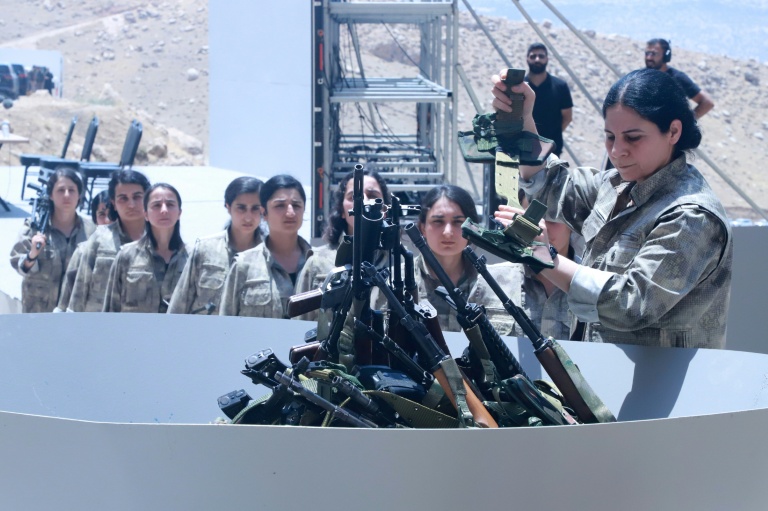Kurds in Turkey Still Doubt Peace Process

A Fragile Peace in Southeast Turkey
Southeast Turkey, a region that has endured decades of conflict with Kurdish militants, remains skeptical about the prospect of lasting peace. While a symbolic ceremony took place across the border in Iraq on Friday, where members of the Kurdish rebel group PKK destroyed their weapons as part of an ongoing peace process with the Turkish state, the mood in Hakkari—a Kurdish-majority town just 50 kilometers from the Iraqi border—remains one of cautious hope.
In this small town, the streets are patrolled by police, including undercover officers, who make their presence known. This has created an atmosphere where locals are hesitant to speak openly with visiting journalists. One tea drinker, who preferred not to be filmed, shared his concerns. "We don’t talk about it because we never know what will happen tomorrow," he said. "We can say something now and be punished for it tomorrow."
The conflict has had a devastating impact, with over 50,000 civilian deaths and 2,000 military casualties, according to Turkish President Recep Tayyip Erdogan. The pain of past failed peace attempts lingers, making trust in the current process difficult to come by.
Voices of Doubt
Mehmet Duman, a 26-year-old restaurant worker, expressed his skepticism. "They segregated us, beat us, simply because we're Kurdish," he said. "We witnessed all kinds of persecution." He urged the government to take concrete steps to ensure a better future for all citizens, not just symbolic gestures like the destruction of PKK weapons.
Erdogan claimed victory in the peace process, stating, "Turkey has won." However, his administration has simultaneously intensified its crackdown on opposition forces. Hundreds of members of the CHP, a social-democratic party with roots in Mustafa Kemal Ataturk’s legacy, have been arrested. These arrests include high-profile figures such as Istanbul Mayor Ekrem Imamoglu and mayors of other major cities who gained power following the March 2024 local elections.
Authoritarian Tendencies
Political analyst Berk Esen noted that since the start of the peace process, Turkey has become more authoritarian. "The disarmament of a terrorist organization should lead to democratization and social peace, but it probably won't," he said.
The crackdown has also targeted opposition media outlets. Sozcu, a television channel, has faced 16 fines and suspensions since January, with one fine issued every two weeks. Its director, Ozgur Cakmakci, described the situation as a deliberate attempt to silence dissent. Erol Onderoglu of Reporters Without Borders stated there is little doubt that the government aims to eliminate opposition voices as part of an authoritarian strategy.
Reassurances from Erdogan
Despite these tensions, Erdogan sought to reassure his supporters during a meeting with his AKP party. "We know what we are doing. No one should worry, be afraid, or question anything. Everything we are doing is for Turkey, for our future and our independence," he insisted.
Yet, the people of Hakkari and others in the region remain wary. The promise of peace is met with deep-seated distrust, shaped by years of conflict and political repression. As the peace process moves forward, the challenge remains whether it can bring true stability and reconciliation to a region still grappling with the scars of war.
Komentar
Posting Komentar